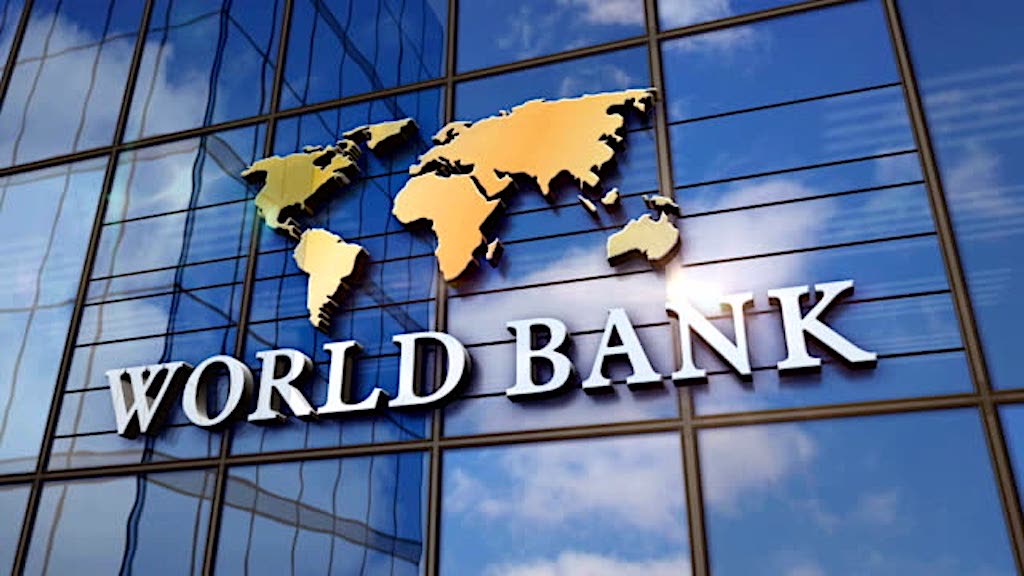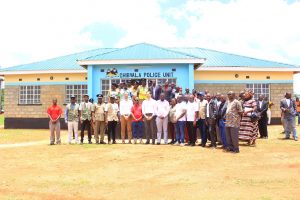
* The biggest impression I have is the spirit of dynamism among all people in Malawi
* They are able to see these opportunities, use the money they receive wisely on their children’s education and nutrition
* As well as use the income they have to build their own businesses and grow the prosperity of their families
By Mary Makhiringa, MANA
World Bank program lead for human development in East Africa, Aneesa Arur on Monday reaffirmed their commitment to continue supporting Malawi Government to achieve its development goals.

Advertisement
Arur pledged this in Balaka during her official visit to Nanjiri catchment where she appreciated a number of environmental restoration activities supported by World Bank and implemented by Balaka District Council.
She said World Bank sees Malawi as a very important partner on issues of climate and economic shocks, saying such issue are critical to the partnership and needs to be strengthened further.
“We are extremely committed to supporting the Government of Malawi and the most vulnerable people by building their resilience and allowing them to build their human capital. One priority, going forward, will be to continue building adaptive social protection in Malawi.
“With what I have seen, I am sure that communities will bounce back faster from shocks so that it does not erode their livelihoods and by continuing to make progress towards prosperity reducing poverty and preserving our planet,” she said.

Weather update
Arur acknowledged impact of climate change on livelihood and appreciated activities implemented under climate smart enhanced public works programme (CS-EPWP) in Balaka — having seen the far reaching impact of the programme (CS-EPWP) in the lives of the communities, on agriculture as well as the future of the children.
“Above all, the biggest impression I have is the spirit of dynamism among all people in Malawi — they are able to see these opportunities, use the money they receive wisely on their children’s education and nutrition as well as use the income they have to build their own businesses and grow the prosperity of their families,” she added.
Meanwhile, Arur has disclosed that plans are already advanced to increase wages of participants of the social support for resilience programme to meet the current economic hardships in Malawi.
Poverty reduction & social protection director in the Ministry of Finance, Kettie Longwe said that wages are currently under scrutiny so that they are revised further.
“Currently, we have just revised the transfer levels for the social cash transfer programme beneficiaries, and we already recommended on the revision of wedges for CS-EPWP and soon it will be announced at the higher steering committee to meet this month,” she said.




Advertisement
Balaka District Council chairperson, Osman Mapira acknowledged that the World Bank-funded programmes help people improve livelihoods, saying: “Balaka is one dry area — the program is helping harvesting rain water which is increasing agricultural yield to people.
“Our youths are also being trained in various vocational skills through COMSIP, which is economically helping them,” he said, adding that over 18,200 households in Balaka are participating in the CS-EPWP by working in 18 micro catchments.
Another World Bank mission was in Dowa led by Michael Roscitt, of the Enable Service Delivery (GESD) task team, which commended the District Council for what he described as good implementation of GESD and Performance Based Grants (PBG) projects.
Roscitt’s team inspected various projects being implemented under GESD/PBG funds and was satisfied that it is yielding the desired results of improving service delivery in local council’s and aiding decentralisation.


“I am extremely impressed by the projects which Dowa has delivered. It is most exciting to see Dowa focus on delivering functional projects, because the most important thing is to deliver services to citizens through the investments made.
“It is very clear that this commitment is not just through GESD/PBG funds, but also in the other sources of financing that are available to them including district development fund, community development fund, and others. So as the World Bank, we’re very impressed and very excited,” he said.
Roscitt, however, tipped the Council to continue working on issues of technical supervision and contract management, saying as more and more PBG is received, there will be more projects to be done and therefore issues of overseeing quality should not be compromised.
He further said the World Bank will continue to support government of Malawi regarding the GESD and PBG if there are continued good results being recorded.

Advertisement
“Going forward there is the potential to expand the PBG into other areas, perhaps into municipal and urban councils, and the possibility of also having the PBG to be able to support recurrent financing in addition to the development grant, but this is subject to other discussions,” he said.
Executive Director for national local government finance committee, Kondwani Santhe said there are lessons to be learnt from the success of Dowa in terms of identifying, screening and financing the projects until completion and operational.
“There is always pressure because every stakeholder would want to have that project, but the unison which Dowa is showing, even when it comes to resource allocation, is what is impressive, and to ensure that the project is functional and delivering services is the hallmark of it.”
He also reiterated the need to have all projects with deficiencies in amenities like toilets, furniture, water, or electricity so that the goal of having flagship projects is achieved.
The World Bank mission inspected Chibvala police unit and Kafumphe community secondary school block, both constructed under GESD.—Additional reporting by Sylvester Kumwenda, MANA

Advertisement
